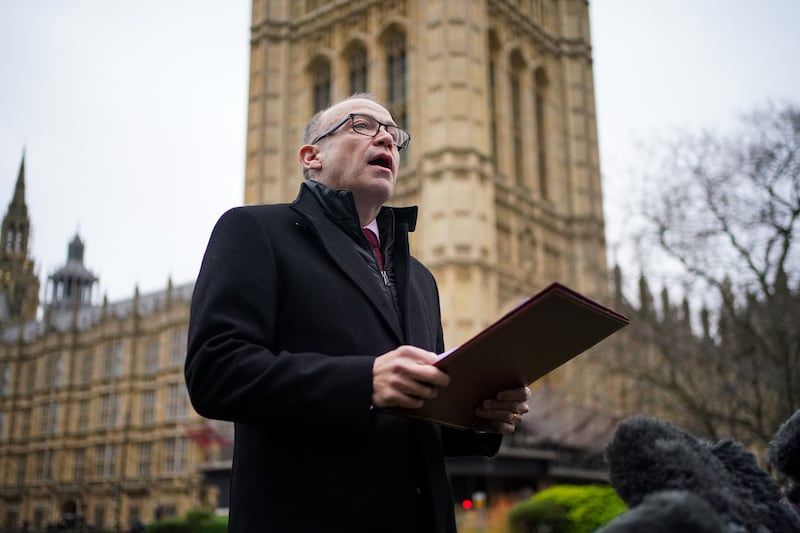Command papers have been on the go since 1833. There have been thousands of them. Some are white, some are green.
Wednesday’s was unique for, regardless of its cover, it’s red, white and blue. Nakedly partisan, one-sided and divisive, it is drafted with one aim and one aim only, to convince the slow learners in the DUP and loyalism to buy the deal.

There are extensive repetitive sections of primary school-level explanations about the Act of Union including, laughably, pictures and diagrams showing how certain products had different prices in GB and Ireland at different times in the past and how Ireland was treated differently. Not sure how helpful that is.
The vast majority of it is window-dressing with bells and whistles, none of which will make any difference to the lives of anyone living here.
Nevertheless, it’s clear whoever drafted it has been talking to the DUP for too long and has bought their erroneous view of the Good Friday Agreement. More seriously, the proconsul, and perhaps others in this rotten government, has bought the DUP view.
- UK Government Command Paper: What’s in the Donaldson deal?Opens in new window
- Brian Feeney: Forget smoke and mirrors of DUP deal – the real change for unionists will be a Sinn Féin First Minister in Michelle O’NeillOpens in new window
- Arlene Foster backs Donaldson deal as she accuses opponents of ‘usual stereotypical reaction’Opens in new window
That was exemplified in his howler at the dispatch box on Wednesday when, in answer to a question about Irish unity, the proconsul said: “Any change [in the constitution] would absolutely depend on the consent of both communities at the time.”
Wrong: it’s a simple majority, something argued over in detail in the Good Friday negotiations. If a simple majority is sufficient to maintain the union, then a simple majority is sufficient to end it.
It’s profoundly alarming, shocking in fact, that a British cabinet minister does not know that. This is especially so as he is the person who would decide on whether to call a referendum. To put it mildly, he doesn’t know what he’s talking about.

Still, that howler from the proconsul is consistent with a number of schemes in the paper to restore a unionist veto to proceedings at Stormont. The most egregious is the proposed alteration in the so-called ‘democratic consent vote’ to accept the Framework later this year.
Par. 162 says if a vote is “by simple majority only” [only is underlined] the British government will ‘initiate a timely review of the operation of the Framework”. To overturn an assembly majority if the DUP don’t like it?
Par. 163 continues: “This recognises a fundamental underpinning of the Belfast (Good Friday) Agreement – namely the desire for the arrangements which pertain to Northern Ireland to have a broad and cross-community consensus. This review will be an important means to consider any steps which could be taken to enable the Framework to command support across the community.”
This procedure is not a fundamental underpinning of the GFA. There are procedures in specific circumstances such as the petition of concern which the DUP has repeatedly abused with blank pre-signed petitions. It’s a bare-faced attempt to restore the unionist veto using language the DUP uses.
It’s another example of giving in to the DUP’s inherently divisive approach to politics regardless of its effect on the rest of the people on this island
Another area where the British have reinforced DUP prejudice is in the plan to repeal the legal duties “to have regard to the all-island economy” in Section 10 of the 2018 Withdrawal Agreement. The paper provocatively denies the existence of the all-island economy and always places the phrase in derisive inverted commas.
Such a plan is seriously and gratuitously damaging to the economic reality in this island. It’s unnecessary pandering to the DUP’s introverted, worm’s eye view of the world. It’s another example of giving in to the DUP’s inherently divisive approach to politics regardless of its effect on the rest of the people on this island.
Nonetheless, the bells and whistles and red, white and blue bunting around the shop window have succeeded in persuading the DUP to buy the deal. However, nothing can stop the real deal, the political change coming down the track here, signified by council and assembly election results placing Michelle O’Neill in the first minister’s office.




